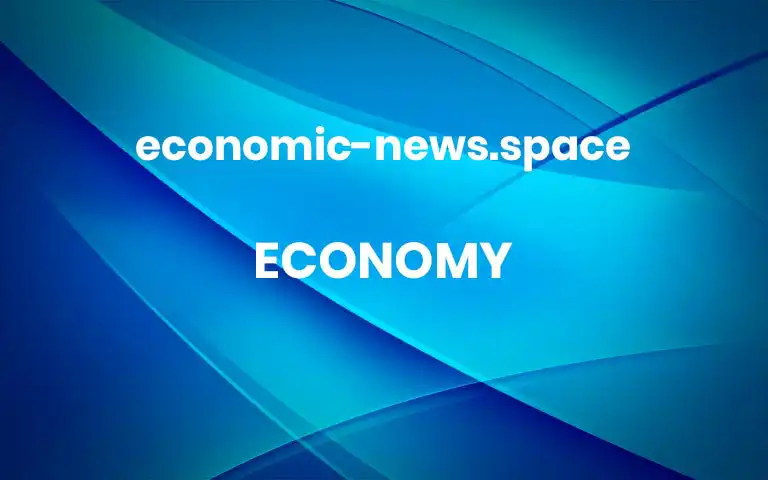Facing Intensifying Crises, Biden Pledges Action to Address Economy and Pandemic

#masthead-section-label, #masthead-bar-one { display: none }The Presidential TransitionliveLatest UpdatesCalls for Impeachment25th Amendment ExplainedTrump Officials ResignHow Mob Stormed CapitolAdvertisementContinue reading the main storySupported byContinue reading the main storyFacing Intensifying Crises, Biden Pledges Action to Address Economy and PandemicWith job losses, record coronavirus numbers and politics in turmoil after the storming of the Capitol, the president-elect pressed for quick passage of a stimulus package to help struggling Americans.President-elect Joseph R. Biden Jr. said it was up to Congress to decide whether to impeach President Trump, but he stressed that he expected lawmakers on both sides of the aisle to get to work quickly after he is sworn in on Jan. 20.Credit…Kriston Jae Bethel for The New York TimesMichael D. Shear and Jan. 8, 2021WASHINGTON — President-elect Joseph R. Biden Jr. on Friday promised an accelerated response to a daunting and intensifying array of challenges as the economy showed new signs of weakness, the coronavirus pandemic killed more Americans than ever, and Congress weighed impeaching President Trump a second time.As Washington remained consumed with the fallout from the storming of the Capitol on Wednesday and Democrats stepped up their efforts to hold Mr. Trump accountable for his role in inciting the attack, Mr. Biden signaled that he intended to keep his focus on jobs and the pandemic, declining to weigh in on whether the House should impeach Mr. Trump.On a day the Labor Department reported that the economy lost 140,000 jobs in December, ending a seven-month streak of growth after the country’s plunge into recession in the spring, Mr. Biden said there was “a dire, dire need to act now.”He pledged to move rapidly once he becomes president to push a stimulus package through Congress to provide relief to struggling individuals, small businesses, students, local governments and schools.Mr. Biden and his aides have not yet finished the proposal or settled on its full amount. Forecasters expect further job losses this month, a casualty of the renewed surge of the coronavirus pandemic and state and local officials’ impositions of lockdowns and other restrictions on economic activity meant to slow the spread.“The price tag will be high,” Mr. Biden told reporters in Wilmington, Del.“It is necessary to spend the money now,” he said, apparently referring to his entire batch of economic plans, including both immediate aid and a larger bill that includes infrastructure spending. “The answer is yes, it will be in the trillions of dollars.”The Biden team is also preparing a wave of economic actions that will not require congressional approval. Mr. Biden’s aides said on Friday that the president-elect would direct the Education Department to extend a pause on student loan payments that was initially issued under Mr. Trump. Mr. Biden called on Congress on Friday to take “prompt action” to raise the federal minimum wage to at least $15 an hour.He also pledged to ramp up efforts to slow the spread of the virus, which is now claiming 4,000 lives each day — more than those who perished during the Battle of Antietam during the Civil War, the attack on Pearl Harbor in 1941 or the terrorist attacks on Sept. 11, 2001. Mr. Biden’s team said the president-elect would immediately provide more vaccines to states when he takes office, breaking sharply from Mr. Trump’s practice of holding back some shots for second doses.“People are really, really, really in desperate shape,” Mr. Biden said.While he said the question of impeaching Mr. Trump was up to Congress, he assailed the president once again for his conduct in office even as he sought to position himself as focused on the issues of greatest immediate concern to voters: their health and economic security.“I thought for a long, long time President Trump was unfit to hold the job,” Mr. Biden said. “I’m focused on the virus, the vaccine and economic growth. What the Congress decides to do is for them to decide.”“But,” he added quickly, “they’re going to have to hit the ground running.”Along with the powers of the presidency that he will assume at noon on Jan. 20, Mr. Biden will take responsibility for guiding the country through a collision of crises more varied and intense than any that faced his recent predecessors. In addition to the pandemic and the faltering economy, they include racial tensions that demand reconciliation after simmering for decades and a deep political divide that flared into violence on Wednesday and rocked the country’s assumptions about its tradition of peaceful transfers of power.“It’s bigger than his presidency. It’s going to take a generation working on all this,” said Rahm Emanuel, who was former President Barack Obama’s chief of staff as he entered office during the economic crisis more than a decade ago.“He’ll take the first steps,” Mr. Emanuel said of Mr. Biden. “But you don’t deal with 20 years of change in a week or two. This is a generation’s worth of work.”Mr. Biden — who on Friday repeated his promise to work with Republicans to advance his agenda — now faces the real prospect that Mr. Trump could be standing trial for sedition in the Senate as he takes office.That work begins in earnest in 12 days, and aides to Mr. Biden said he expected lawmakers on both sides of the aisle to get to work quickly, even as the issue of Mr. Trump’s fate dominates the conversation in Washington.The Presidential TransitionLatest UpdatesUpdated Jan. 8, 2021, 10:32 p.m. ETMore national security officials resign from a White House in turmoil.A judge has blocked Trump’s sweeping restrictions on asylum applications.Josh Hawley faces blowback for role in spurious challenge of election results.Speaker Nancy Pelosi’s steps toward impeaching Mr. Trump a second time came after a surge of anger by members of both parties at what many called an insurrection by the president’s supporters. Mr. Biden on Friday called them “a bunch of thugs, insurrectionists, white supremacists, anti-Semites” who had “the active encouragement of a sitting president of the United States.”But Mr. Biden seemed aware of the political risk of becoming the primary spokesman for the punishment and removal of his predecessor, and the danger that a drawn-out impeachment and trial could delay or derail his hopes for quick passage of his biggest agenda items.He said he might have openly supported impeachment if the Capitol attacks had happened when Mr. Trump had six months left in his term. But he repeatedly suggested that the best way to be rid of the current president was to wait until Mr. Biden is inaugurated.“The question is, what happens with 14 days left to go, or 13 days left to go?” Mr. Biden said, adding later that “I am focused now on us taking control, as president and vice president, on the 20th, and to get our agenda moving as quickly as we can.”The president-elect said he thought the events at the Capitol on Wednesday might serve as a moment that drove people together, and he singled out Senators Mitch McConnell of Kentucky and Mitt Romney of Utah, both Republicans, as examples of political adversaries who shared his anger at what had happened.“Many of them are as outraged and disappointed and embarrassed and mortified by the president’s conduct as I am,” Mr. Biden said.But in the same breath, he underscored the divisions that remain in Washington, lashing out at Senator Ted Cruz, Republican of Texas, for leading the effort to overturn the election on Mr. Trump’s behalf and for spreading misinformation to the president’s supporters that helped whip them into a frenzy.He said he agreed with some Republicans who have said “how shameful it is the way Ted Cruz and others are dealing with this, how they’re responsible as well for what happened.”When asked whether Mr. Cruz should resign, Mr. Biden said, “I think they should be just flat beaten the next time they run. I think the American public has a real good, clear look at who they are. They are part of the big lie.”Mr. Biden said he was scheduled to unveil his legislative program for addressing the coronavirus crisis and its economic consequences on Thursday, six days before his inauguration as the 46th president.Mr. Biden’s economic team is deep into the process of developing proposals for a second stimulus bill and a larger economic package, including spending on infrastructure and tax increases on the rich. Aides and top congressional Democrats hope to speed the package through Congress once Mr. Biden takes office.“A devastating pandemic, an economic crisis, a country riven by political division and mistrust, institutions badly damaged and global alliances shredded,” said David Axelrod, who served as a political adviser to Mr. Obama during his first two years in the White House. “He has his hands full.”Mr. Biden and his aides have been particularly struck by two grim numbers in the jobs report on Friday: the loss of nearly 500,000 jobs in December in the leisure and hospitality industry, and of thousands of jobs in public education — a warning sign that state budget cuts could further hold back the recovery in months to come.They are particularly focused on direct checks to individuals, a policy that Mr. Biden and Democratic Senate candidates hammered in Georgia’s runoff elections that gave their party control of the chamber, and on efforts to fight the pandemic by accelerating testing for the virus and the deployment of vaccines.The contours of those proposals are beginning to take shape. The stimulus package will include Mr. Biden’s call for an additional $1,400 in direct payments to adults and children who qualified for $600 payments approved in the lame-duck stimulus passed last month, bringing the total benefit to $2,000 per individual.The challenge in steering his stimulus plans through a narrowly divided Senate was on display on Friday, when a moderate Democrat, Joe Manchin of West Virginia, said that $2,000 direct payments should not be the first priority for legislation and that he would prefer checks to be targeted “to those who need it.”The package will also include additional benefits for the nearly 11 million Americans who are still classified as unemployed by the Labor Department, assistance for renters and help for small business owners, with a focus on businesses owned by women and minorities. It will feature what Mr. Biden promised would be tens of billions of dollars to help schools reopen safely, tens of billions to help state and local governments keep essential workers on the job and “billions of dollars to get vaccines from a vial into someone’s arm.”Leaders in the Senate — like Bernie Sanders, Independent of Vermont, who will lead the Budget Committee, and Ron Wyden, Democrat of Oregon, who will be the chairman of the Finance Committee — said in interviews this week that they were preparing to work quickly with Mr. Biden’s team to draft new economic rescue legislation.Mr. Sanders said that he had spoken to Mr. Biden on Thursday about proposals, and that Mr. Sanders’ staff was already working to flesh out details.“He is, I know, going to be doing everything that he can to address the economic and health care crises facing our country,” Mr. Sanders said of Mr. Biden. “The crisis is of enormous severity, and we’ve got to move as rapidly as we can.”AdvertisementContinue reading the main story More



